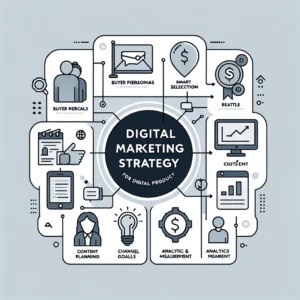Product development is a critical process for any organization aiming to stay competitive in today’s fast-paced business landscape. At the heart of this process lies the role of a product development manager, a key player responsible for driving innovation, managing projects, and ensuring successful product launches. In this article, we will delve into the world of product development managers, exploring their responsibilities, skills, and the impact they have on an organization’s success.
The Role of a Product Development Manager

A product development manager is a strategic leader who oversees the entire lifecycle of a product, from conception to launch. They collaborate with cross-functional teams, including marketing, engineering, design, and manufacturing, to ensure the successful development and delivery of products that meet customer needs and align with the company’s goals.
Looking for a experienced product manager? Click here!
One of the primary responsibilities of a product development manager is to identify market opportunities and develop innovative product ideas. They conduct market research, analyze customer feedback, and stay updated on industry trends to identify gaps in the market and potential areas for growth. By understanding customer needs and market demands, product development managers can guide the creation of products that resonate with target audiences.
Once a product idea is identified, the product development manager works closely with the engineering and design teams to transform the concept into a tangible product. They define product requirements, create project timelines, and allocate resources to ensure efficient and timely development. Effective communication and collaboration with cross-functional teams are crucial to ensure that the product meets quality standards and is delivered within budget and schedule.
Throughout the development process, product development managers also play a vital role in managing risks and solving problems. They anticipate potential obstacles, develop contingency plans, and make informed decisions to keep the project on track. By proactively addressing challenges, product development managers minimize delays and ensure the successful completion of projects.
Skills and Qualifications of a Product Development Manager
Being a product development manager requires a unique blend of technical, strategic, and interpersonal skills. Let’s explore some of the key qualifications and competencies that make a successful product development manager:
1. Technical Expertise
A product development manager should have a solid understanding of the technical aspects related to product development. This includes knowledge of engineering principles, manufacturing processes, and design methodologies. By having a strong technical foundation, product development managers can effectively communicate with engineers and designers, ensuring that product requirements are met and technical challenges are addressed.
2. Strategic Thinking
Product development managers need to think strategically to identify market opportunities and guide the development of innovative products. They should be able to analyze market trends, assess competitive landscapes, and make data-driven decisions. By aligning product development with the company’s overall strategy, product development managers contribute to the organization’s long-term success.
3. Project Management
Effective project management is a crucial skill for product development managers. They need to be able to create project plans, set realistic timelines, and manage resources efficiently. Strong organizational skills, attention to detail, and the ability to prioritize tasks are essential to ensure that projects are completed on time and within budget.
4. Communication and Collaboration
Product development managers work closely with cross-functional teams, requiring excellent communication and collaboration skills. They should be able to clearly articulate product requirements, provide feedback, and foster a collaborative environment. By building strong relationships with team members, product development managers can ensure effective teamwork and successful project outcomes.
5. Leadership
As leaders in the product development process, product development managers should inspire and motivate their teams. They should be able to provide guidance, resolve conflicts, and empower team members to achieve their full potential. Strong leadership skills are essential for driving innovation and fostering a culture of continuous improvement.
Case Study: Apple’s Product Development Manager
Apple Inc. is renowned for its innovative products that have revolutionized the technology industry. The success of Apple’s product lineup can be attributed, in part, to the role of its product development managers. One notable example is the late Steve Jobs, who played a pivotal role in shaping Apple’s product strategy and overseeing the development of iconic products like the iPhone and iPad.
Steve Jobs, as the product development manager, had a visionary approach to product development. He focused on creating products that seamlessly integrated hardware, software, and design, delivering exceptional user experiences. By understanding customer needs and anticipating future trends, Jobs guided the development of groundbreaking products that disrupted entire industries.
Under Jobs’ leadership, Apple’s product development process emphasized simplicity, elegance, and innovation. He challenged his teams to think differently and pushed the boundaries of what was possible. This approach resulted in products that not only met customer expectations but exceeded them, creating a loyal customer base and driving Apple’s success.
The Impact of Product Development Managers on Organizational Success
Product development managers play a crucial role in an organization’s success. Their contributions extend beyond the development of individual products and have a significant impact on the overall business. Let’s explore some key ways in which product development managers drive organizational success:
1. Innovation and Competitive Advantage
Product development managers are at the forefront of innovation, constantly seeking new ideas and opportunities. By developing products that meet customer needs and offer unique value propositions, they help organizations differentiate themselves from competitors. Innovative products not only attract new customers but also retain existing ones, giving companies a competitive advantage in the market.
2. Revenue Growth
Successful product launches can significantly contribute to an organization’s revenue growth. Product development managers ensure that products are developed efficiently, meet quality standards, and are delivered on time. By effectively managing the product development process, they minimize delays and maximize revenue-generating opportunities. Additionally, product development managers continuously evaluate market trends and customer feedback to identify opportunities for product enhancements and expansions, further driving revenue growth.
3. Customer Satisfaction and Loyalty
Product development managers play a crucial role in understanding customer needs and translating them into innovative products. By conducting market research, analyzing customer feedback, and staying updated on industry trends, they ensure that products resonate with target audiences. Products that meet customer expectations not only result in higher customer satisfaction but also foster loyalty and advocacy. Satisfied customers are more likely to become repeat buyers and recommend products to others, contributing to long-term business success.
4. Risk Management
Product development managers are responsible for managing risks and solving problems throughout the development process. By anticipating potential obstacles and developing contingency plans, they minimize the impact of unforeseen challenges. Effective risk management ensures that projects stay on track, reducing the likelihood of delays, cost overruns, and quality issues. By proactively addressing risks, product development managers safeguard the organization’s reputation and financial stability.
Conclusion
Product development managers are instrumental in driving innovation, managing projects, and ensuring successful product launches. Their strategic leadership, technical expertise, and collaboration skills contribute to an organization’s success by delivering innovative products, driving revenue growth, and fostering customer satisfaction. By understanding the role and impact of product development managers, organizations can prioritize this critical function and leverage it to stay competitive in today’s dynamic business environment.




